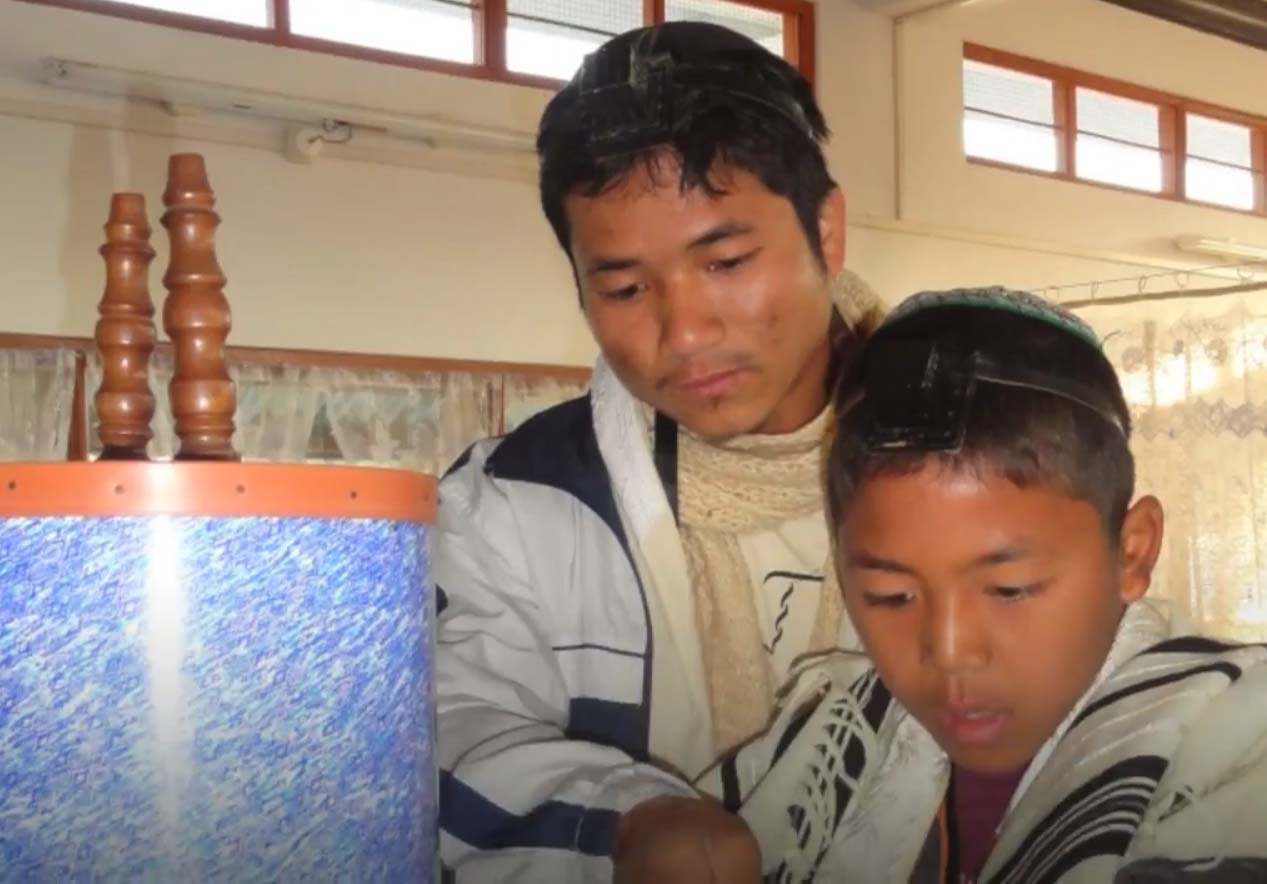“I have been weeping silently for months whenever the thought of leaving my home, my family struck me. Yet, the yearning to return to the holy land is too strong.” Nemchin Touthang, a 57-year-old Jew from Manipur’s Churachandpur district, is one among the 228 Jews who left Manipur on Sunday to permanently settle in Israel. The widow left behind four of her six children to unite with the two who had migrated to the promised land nearly a decade back.
“I will not be coming back to Manipur, because my religion means much more to me,” says Nemcha just before her departure at Imphal Airport.
There are over 9,000 members of the Jewish community living in India’s northeastern states, half of them are in Manipur and Mizoram. Called the Benei Manashe, these Jews are believed to be the descendants of the Menashe tribe, one of the ten lost tribes of Israel. The term Benei Manashe refers to the Chin-Kuki-Mizos (aka CHIKIM) tribes scattered across the region.
According to data from Shavei Israel, a body that oversees the migration of the Jews to Israel, nearly 3000 Jews have migrated to Israel and thousands more are waiting to take the flight. The first mass emigration took place in 2006, when 213 members of the community migrated from Mizoram, followed by a second mass emigration of 233 people from Manipur in 2007. However, the present emigration is the largest as 432 have migrated just this year — 204 in February, followed by 228 on June 10. Another 20 are expected to move on June 12.
The most cherished dreams of the Jews from the northeast was realised when the Benei Menashe communities were officially recognised as one of the ten lost tribes of Israel by the Rabbinic Court of Jerusalem in 2005.
“Prior to the recognition and mass migration approval, some had gone to Israel as tourists and students, but later convert into Judaism and became citizens of Israel. However, the Government of India clamped down on this as it was viewed as conversion,” said a member of the Churachandpur Synagogue, on condition of anonymity.
Those migrating now are provided with a one-year temporary citizenship and are granted full citizenship after they complete basic religious education, says Aaron Vaiphei, assistant manager of Shavei Israel in Manipur. Once the citizenship is granted, those in the 18 to 25 age group are enlisted for the three-year compulsory military service while those above 60 are provided old age pension, he added.
The periodical migration depends on the Government of Israel and is unpredictable, says Vaiphei, adding that approval for migration is given only after an interview by a Rabi. The interview is based on the person’s foundation in Judaism and Jewish life.
The Sabbath movement in Manipur
Although there is no official record, the Sabbath movement is believed to have started in the mid 1950s in Churachandpur district of Manipur. By this time the entire CHIKIM had converted to Christianity which had come to the region in the 1890s. In the early 1960s, a handful of CHIKIM embraced the Sabbath, deviating from the original Christianity tradition of observing Sunday as the rest day.
As per Shavei Israel, the realisation that the CHIKIM belong to one of the lost tribes came when similarities were found in the traditional religious practices of the community, before the advent of Christianity, to that of Jews. For instance, when a male Jewish child is born circumcision is performed on the eighth day. The CHIKIM pierce a child’s ear on the eighth day. This could be attributed to Antiochus IV of Epiphanes, who in 157 BC tortured the Jews in his kingdom, and banned the practice of circumcision. Similarities were also pointed out in the marriage of maternal cousins, feasts, festivals and traditional songs with mention of the Red Sea.
The Manashe are believed to have come here after Assyrian King Shalmaneza conquered the 10 Israel tribes. It is believed that they escaped slavery, travelled to Persia and then China before moving to Burma, and finally the northeastern part of India.
The Manipur Jews Organisation (MJO) was formed in May 1972 and started establishing contact with Jews in other parts of India. In October 1974, the MJO was later renamed the United Jews of North East India (UJNEI), with the objective of uniting various Sabbath-observing and Judaic groups.
In 1976, T Daniel returned to Churachandpur after establishing contact with the Israel Consulate in Bombay. Subsequently, the a synagogue was established at Tuibuong in Churachandpur. In 1979, Eliyahu Avihail, a Rabi from Israel and Chairman of Amishav which searches descendants of the “lost tribes”, contacted the Benei Manasshe to send a person to Isreal to study Judaism. In 1981, Simeon Gin of Churachandpur became the first from the tribe to to go to Israel. In 1988, 24 persons from Manipur and six from Mizoram were converted by Rabbi Dr Jacob Newman under the instruction of Elihayu.





























